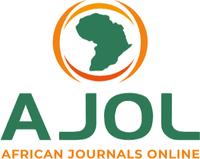METAGENOMICS: UNRAVELLING THE UNCULTURED MICROBIAL COMMUNITY
Keywords:
Metagenomics, Next-generation sequencing, Traditional culturing, Uncultured microbial world, Function-driven metagenomics.Abstract
The discovery of the traditional culturing techniques for microorganisms in the laboratory has
remained a classical landmark attained in the field of microbiology and sustained as the earliest
methods used in the study of microbial physiology, functions and diversity by microbiologists.
However, many studies now evidently portrayed these traditional culturing methods
significantly unreflective of the uncultured microbial population. Thus, implying these historic
microbiological techniques failing to capture the full spectrum of microbial diversity in an
environment. Providentially, three decades ago, metagenomics has opened new avenues of
research by enabling unprecedented analyses of genome heterogeneity and evolution in
environmental contexts and providing access to far more microbial diversity than previously
analysed. This new concept in microbial investigation has thrived in establishing the identity
of microorganisms in diverse environments and allow a reasonable estimate of their
functionality without the need for their cultivation. Metagenomics currently merged with the
next-generation sequencing enabled the unravelling and functional exploitation of the
uncultured microbial world, and conceivably transformed the archaic perception of microbial
ecologists. Therefore, this review reflects on the traditional cultivation technique and the
milestone attained since the dawn of metagenomics, with furtherance to the in-depth
applications of the new age metagenomics approach in contemporary microbial studies, its
challenges and future outlook.





